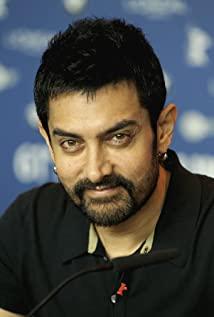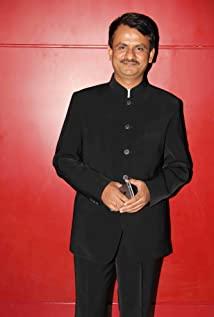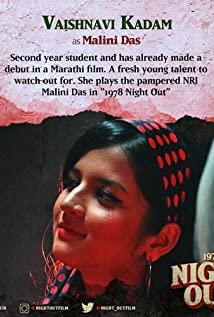For a work, we often discuss what "ideas" it expresses. When we were kids doing reading comprehension questions, we were often asked about its "central idea". The "idea" here often belongs to a kind of "advocacy", such as "feminism" and "gender equality", which means that "both sexes should enjoy equal civil rights and should be treated equally in politics, economy, society and family, Against sexism." (Quoted from Wikipedia) The question is: A film is a story that contains description and narrative, and what claims can be drawn from description and narrative? For example, a girl is crying in the picture. We infer from this that the movie advocates that parents are tolerant to children, or that the movie advocates that children learn to be sensible. Which of these two propositions is correct? Or we ask the other way around: What can a film do if it wants to make a claim through itself? The relationship between "facts" and "shoulds" is a topic of ethics. Some people think that science can finally solve the problem of ethics, because science can find out the value of different facts by studying the facts. As long as it studies the value of various facts clearly and shows it to us, we will know which values to choose. something higher. I think this way of thinking is very important. Some would argue that value is difficult or impossible to quantify. —and this is also an accusation of utilitarianism. The answer to this is that quantification, while difficult, is still doable. For example, stabbing you with 10 needles will hurt more than stabbing you with 1 needle. You are bored at home, choose to kill a chicken to make soup to comfort yourself, and the pain the chicken gains may be far greater than the pain you relieve. We quantify all the time in our lives, and we quantify and thus relativize the supreme and uncompromising values that we proclaim in our sermons. For example, in order to save a few hundred dollars, I choose to spend a few more hours and turn the machine one more time. Here, I have made a conversion between my life and money: what is life, isn't it time! Back to the original topic, how do we derive an idea from a fact. Logically, this is impossible. But literary works have a "suggestion," a set of conventions that allow us to establish some conventional connection between facts and ideas. This convention is not only cherished by our audience, but also accepted by a large number of authors, who are likely to use this set of conventions to convey some of their ideas. The conventions I can think of are the following: Subject matter: The choice of subject matter can be an assertion in itself. For example, the movie chooses a story of women's struggle and success, we tend to think that the work thinks this There is some value in this story, and the women in the story are role models. Context: For example, when a girl is training hard, if the background music is "majestic", we will feel that the film is praising the spirit of unremitting struggle, and if it is "miserable", we will feel that it is criticizing women. If the tragic treatment was "funny", we would feel that there was some irony in it. So the background music is a commentary that we feel connected to the idea of the movie itself. Plot: We have a set of karma mentality, that good is rewarded with good and evil is rewarded with evil. If a person succeeds at the end of the story, it means that the movie has a positive attitude towards him, and if it is destroyed, it is a negative attitude. Horror movies are an exception, as we know their purpose is to create the horror effect itself. This is why horror films are mostly imaginary monsters and chaotic gods, and there are few things that are related to reality. Imagination: The work sometimes has a completely imaginary part, and this imaginary pinned its ideals. For example, in a story in Liaozhai, a woman is killed by a rich man. The story is only halfway through here, and the second half is the revenge of the female ghost on the rich man. We tend to feel that the latter half expresses the author's view of justice. Another example is to set up a utopia whose world is what the work claims. Character Comments: The author may place some characters in the story to directly express a certain view of things. In this film, for example, a fourteen-year-old girl who is forced into an arranged marriage bemoans her fate as a woman, and we tend to think that's what the film is about. Especially when the character, in his capacity, is unlikely to utter such a set of words, we increasingly think of it as something inserted by the work itself. There are more songs and dances in Indian movies, and the lyrics of the characters are also a kind of more direct comments. Thoughts in reality: For example, we have an influential thought in reality that advocates changing the status quo A to B. Then, when a movie shows how badly A is, we think it's presumably claiming B. For example, feminism advocates female independence. When a film depicts the suffering of girls who are not independent, we will think that this is a feminist work. I feel like this kind of comment has something to do with the idea of the film itself. Plot: We have a set of karma mentality, that good is rewarded with good and evil is rewarded with evil. If a person succeeds at the end of the story, it means that the movie has a positive attitude towards him, and if it is destroyed, it is a negative attitude. Horror movies are an exception, as we know their purpose is to create the horror effect itself. This is why horror films are mostly imaginary monsters and chaotic gods, and there are few things that are related to reality. Imagination: The work sometimes has a completely imaginary part, and this imaginary pinned its ideals. For example, in a story in Liaozhai, a woman is killed by a rich man. The story is only halfway through here, and the second half is the revenge of the female ghost on the rich man. We tend to feel that the latter half expresses the author's view of justice. Another example is to set up a utopia whose world is what the work claims. Character Comments: The author may place some characters in the story to directly express a certain view of things. In this film, for example, a fourteen-year-old girl who is forced into an arranged marriage bemoans her fate as a woman, and we tend to think that's what the film is about. Especially when the character, in his capacity, is unlikely to utter such a set of words, we increasingly think of it as something inserted by the work itself. There are more songs and dances in Indian movies, and the lyrics of the characters are also a kind of more direct comments. Thoughts in reality: For example, we have an influential thought in reality that advocates changing the status quo A to B. Then, when a movie shows how badly A is, we think it's presumably claiming B. For example, feminism advocates female independence. When a film depicts the suffering of girls who are not independent, we will think that this is a feminist work. I feel like this kind of comment has something to do with the idea of the film itself. Plot: We have a set of karma mentality, that good is rewarded with good and evil is rewarded with evil. If a person succeeds at the end of the story, it means that the movie has a positive attitude towards him, and if it is destroyed, it is a negative attitude. Horror movies are an exception, as we know their purpose is to create the horror effect itself. This is why horror films are mostly imaginary monsters and chaotic gods, and there are few things that are related to reality. Imagination: The work sometimes has a completely imaginary part, and this imaginary pinned its ideals. For example, in a story in Liaozhai, a woman is killed by a rich man. The story is only halfway through here, and the second half is the revenge of the female ghost on the rich man. We tend to feel that the latter half expresses the author's view of justice. Another example is to set up a utopia whose world is what the work claims. Character Comments: The author may place some characters in the story to directly express a certain view of things. In this film, for example, a fourteen-year-old girl who is forced into an arranged marriage bemoans her fate as a woman, and we tend to think that's what the film is about. Especially when the character, in his capacity, is unlikely to utter such a set of words, we increasingly think of it as something inserted by the work itself. There are more songs and dances in Indian movies, and the lyrics of the characters are also a kind of more direct comments. Thoughts in reality: For example, we have an influential thought in reality that advocates changing the status quo A to B. Then, when a movie shows how badly A is, we think it's presumably claiming B. For example, feminism advocates female independence. When a film depicts the suffering of girls who are not independent, we will think that this is a feminist work. Some characters will be placed in the story to directly express a certain view of things. In this film, for example, a fourteen-year-old girl who is forced into an arranged marriage bemoans her fate as a woman, and we tend to think that's what the film is about. Especially when the character, in his capacity, is unlikely to utter such a set of words, we increasingly think of it as something inserted by the work itself. There are more songs and dances in Indian movies, and the lyrics of the characters are also a kind of more direct comments. Thoughts in reality: For example, we have an influential thought in reality that advocates changing the status quo A to B. Then, when a movie shows how badly A is, we think it's presumably claiming B. For example, feminism advocates female independence. When a film depicts the suffering of girls who are not independent, we will think that this is a feminist work. Some characters will be placed in the story to directly express a certain view of things. In this film, for example, a fourteen-year-old girl who is forced into an arranged marriage bemoans her fate as a woman, and we tend to think that's what the film is about. Especially when the character, in his capacity, is unlikely to utter such a set of words, we increasingly think of it as something inserted by the work itself. There are more songs and dances in Indian movies, and the lyrics of the characters are also a kind of more direct comments. Thoughts in reality: For example, we have an influential thought in reality that advocates changing the status quo A to B. Then, when a movie shows how badly A is, we think it's presumably claiming B. For example, feminism advocates female independence. When a film depicts the suffering of girls who are not independent, we will think that this is a feminist work.
View more about Dangal reviews











